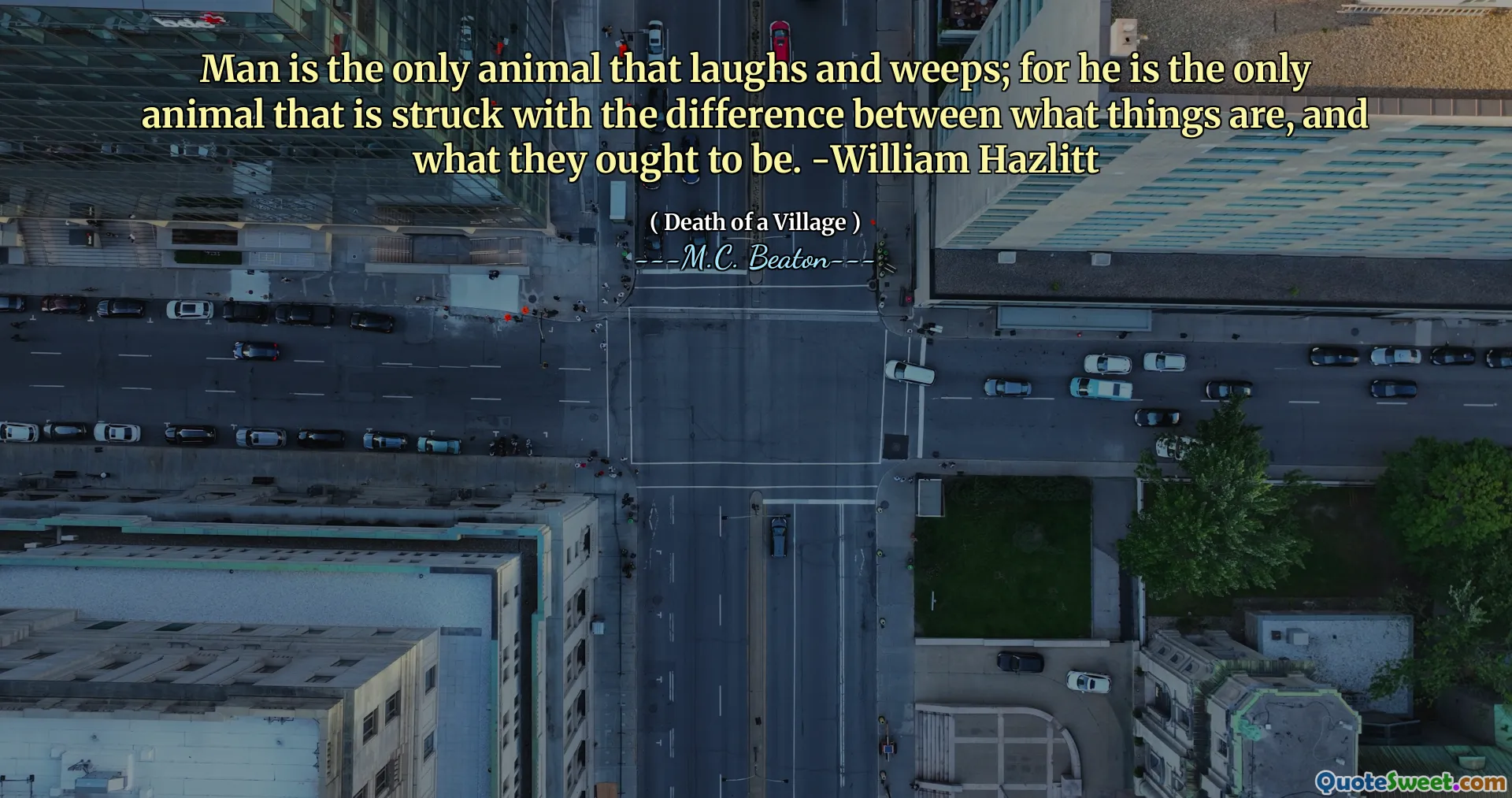
Man is the only animal that laughs and weeps; for he is the only animal that is struck with the difference between what things are, and what they ought to be. -William Hazlitt
In M.C. Beaton's "Death of a Village," William Hazlitt’s quote highlights a unique aspect of humanity: the ability to experience complex emotions such as laughter and sorrow. This duality reflects a deep awareness of the disparity between reality and ideality. While other animals may experience basic emotions, humans grapple with the profound understanding of what is desired versus what is experienced, leading to a broad spectrum of feelings.
This introspective nature not only defines human emotional depth but also shapes our reactions to life's experiences. The acknowledgment of this contrast can lead to both joy and despair, illustrating the complexity of human existence. Beaton weaves this theme throughout her narrative, encouraging readers to consider the emotional landscapes that differentiate humans from other creatures.






